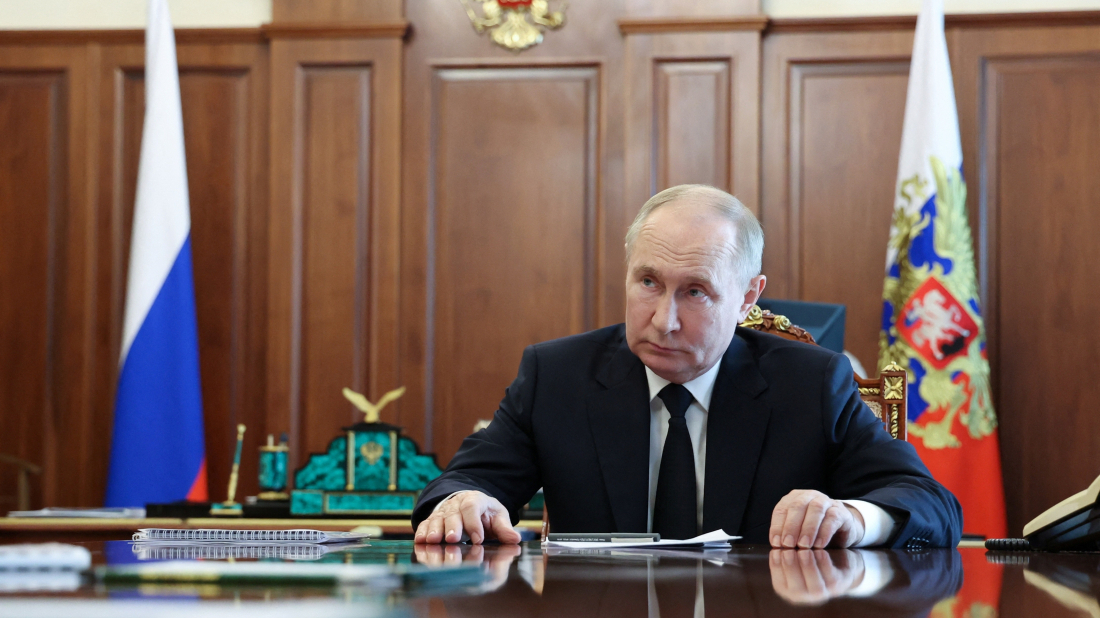Kazakhstan vows to fast-track AZAL crash investigation amid rising diplomatic tensions
Kazakhstan has vowed to speed up its investigation into the Azerbaijan Airlines (AZAL) crash near Aktau, as mounti...

Russia announced that its self-imposed moratorium on deploying intermediate- and shorter-range missiles is coming to an end, accusing the United States and its allies of failing to reciprocate Moscow’s restraint.
Speaking to Russia’s TASS news agency on Sunday, Deputy Foreign Minister Sergey Ryabkov said the decision was compelled by “new and notably acute missile threats” posed by the West. “We have explicitly and straightforwardly declared that the implementation of our previously introduced unilateral moratorium on placing ground-launched INF missiles is approaching its logical endpoint,” Ryabkov stated.
Ryabkov pointed to what he described as accelerating U.S. military efforts to expand the deployment of such weapons. “Practical steps undertaken by the U.S. military in implementing their respective programs convince us that such activity will only intensify,” he said.
The Intermediate-Range Nuclear Forces (INF) Treaty, signed in 1987 between the U.S. and the Soviet Union, banned ground-launched ballistic and cruise missiles with ranges between 500 and 5,500 kilometers. The landmark treaty was credited with significantly reducing nuclear tensions in Europe. However, the U.S. formally withdrew from the agreement in 2019, citing Russian violations—allegations Moscow denies.
Since the treaty’s collapse, Russia had maintained a unilateral moratorium on deploying such missile systems in Europe, urging NATO to do the same. Ryabkov said this gesture of restraint had not been appreciated or matched by the West.
He added that the “specific parameters” of Russia’s military response will be determined by its armed forces and national leadership.
The move is expected to raise concerns in European capitals already wary of growing security risks on the continent amid heightened East-West tensions.
The Kremlin is utilising the recent United States and Israeli military strikes on Iran to validate its ongoing war in Ukraine. Russian officials are pointing to the escalation in the Middle East as evidence that Western nations do not adhere to international rules.
Saudi Arabia’s state oil giant Saudi Aramco closed its Ras Tanura refinery on Monday following an Iranian drone strike, an industry source told Reuters as Tehran retaliated across the Gulf after a U.S.-Israeli attack on Iranian targets over the weekend.
The Middle East crisis intensifies after the deadly attack on the compound of the Supreme Leader of Iran Ali Khamenei on Saturday that killed him, other family members and senior figures. Iran has launched retaliatory strikes on U.S. targets in the region.
U.S. President Donald Trump said the U.S. military has enough stockpiled weapons to fight wars "forever"; in a social media post late on Monday. The remarks came hours before conflict in Iran and the Middle East entered its fourth day.
Türkiye raised its security level for Turkish-flagged vessels in the Strait of Hormuz to Level 3 on Sunday (2 March). The development follows Iranian restrictions on shipping after U.S. and Israeli strikes and confirmation of Supreme Leader Ali Khamenei’s death.
Strikes across the Middle East are intensifying, fuelling travel disruption, driving up global energy prices and forcing diplomatic missions to shut their doors as tensions continue to rise.
U.S. President Donald Trump has said the United States has a “virtually unlimited supply” of munitions and is capable of sustaining military action indefinitely, as the conflict with Iran entered its fourth day.
The United Nations has called for an investigation into a deadly attack on a girls’ primary school in Iran, which Iranian officials say has killed more than 100 children. The U.S. has said its forces “would not” deliberately target a school.
U.S. first lady, Melania Trump chaired a UN Security Council meeting on children and education in conflict on Monday (2 March), a move criticised by Iran as hypocritical following U.S. and Israeli strikes that triggered a UN warning about risks to children.
Start your day informed with AnewZ Morning Brief. Here are the top news stories for the 3rd of February, covering the latest developments you need to know.
You can download the AnewZ application from Play Store and the App Store.

What is your opinion on this topic?
Leave the first comment